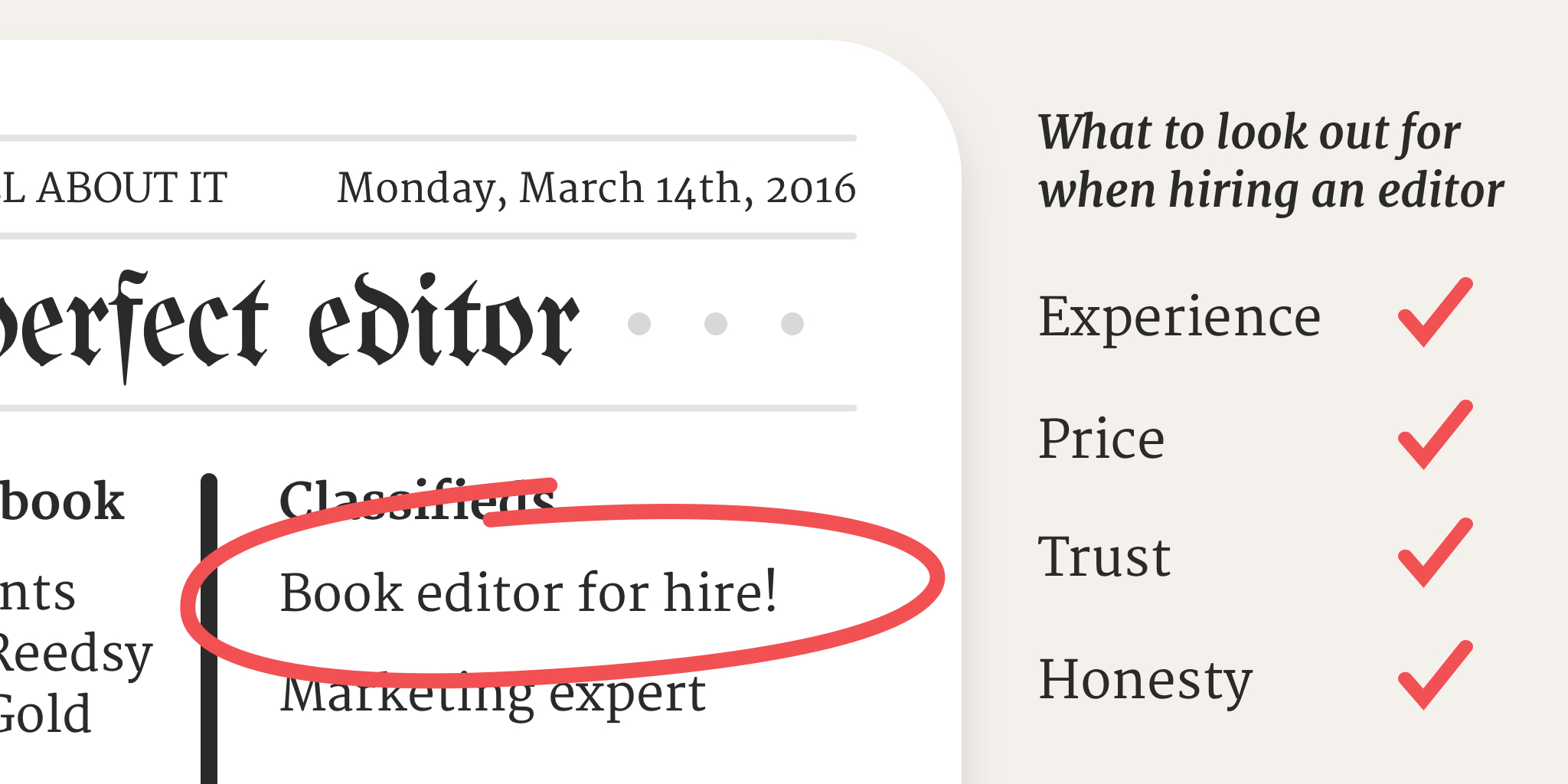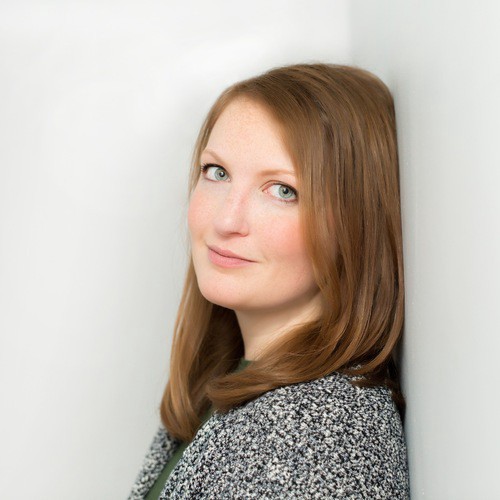“THE END,” you write. Feeling victorious, and maybe a little smug, you lean back in your chair and give a gratified sigh. Your novel is complete.

Almost. Or, more accurately, almost-almost-almost.
A manuscript is like a raw diamond, its value buried deep at its core. You’ve done the hard work of unearthing the thing, but now it’s time to cut and polish this stone to a pristine shine—and for that, you’re going to need an editor. Whether you want to self-publish or query traditionally, a professional freelance editor can help you prepare for the long road ahead. Here, some considerations before you start your search.
1. Start big (picture, that is)
One of the biggest missteps I see authors take is moving into line edits too early. If you have a newly-completed draft manuscript on your hands, you don’t need to worry about comma splices and dangling participles...yet. Instead, you need an editor to give you big-picture feedback on the overall health and success of your story. Is the premise sound and/or marketable? Are your characters authentic and consistent? Does the plot make sense?
This service is frequently dubbed an “editorial assessment” or “edit letter”: an editor reads your full manuscript and provides a pre-determined quantity of feedback on a specified set of topics,for instance, five pages of feedback on plot development, characterization, and style. Experienced editors should have no trouble showing you a sample edit letter, which will demonstrate the depth and style of feedback you can expect.
2. How does it feel?
Not every editor is right for every manuscript, or author. Editing styles vary as much as writing styles do, so when choosing an editor to collaborate with, consider how your early communications with this potential partner make you feel. Your editor’s job is to point out flaws and guide your creativity—sensitive manoeuvres both. Does this person make you feel embarrassed or inspired? Capable or cut-to-size? Find someone who makes a safe space for your creativity, mistakes and all.
3. Leave room
Another big misstep I see authors take is rushing through the many layers of the editorial process. Generally, an edit letter will lead to big revisions; many authors assume the next step is those nit-picky line edits. Not so fast! You’re still in big-picture-feedback territory, though now might be the time to seek out a critique partner (CP) or beta reader as well. After you’ve processed that feedback, go back to your editor (or a different one) for a second read-through or, if you’ve made huge strides, substantive editing. Remember my “raw diamond” analogy? You can’t just pull a lump of dirt from the ground, smack it with a chisel a few times, and expect to have a polished gem in hand. Editing is a multi-faceted process. Leave room to approach it systematically, and in due time.
4. Money, money, money
The editing process can be long and complex—but how much does it cost? You can find editors working in almost every price range, though in publishing, like everywhere else, you get what you pay for. A freelancer’s prices are determined by a huge variety of factors, including experience, education, location (i.e., the cost of living where that freelancer operates), demand/popularity, project complexity, and more. I can’t tell you how much it costs to edit an “average” novel, because there’s no such thing; every project, author and editor is different. What I can tell you is that professional, experienced freelancers want you to know precisely what you’re getting. Insist on clarity before your collaboration begins, and you’re more likely to feel good about investing in your book’s development.
If you want to get an idea of how much you should budget, Reedsy recently released an analysis of the costs of editing, broken down by word count and stage. Check it out here.
A good editor can help shape and polish your writing into the pristine gem you always dreamed it could be. Take your time finding the right partner with the right tools, and you just might be surprised by how beautiful—and valuable—your book turns out to be.

Rebecca Faith Heyman is a no-nonsense, compassionate developmental editor. You can find her, along with hundreds of vetted professional editors, on the Reedsy marketplace – which is actually a great place to find your dream editor!
Comments